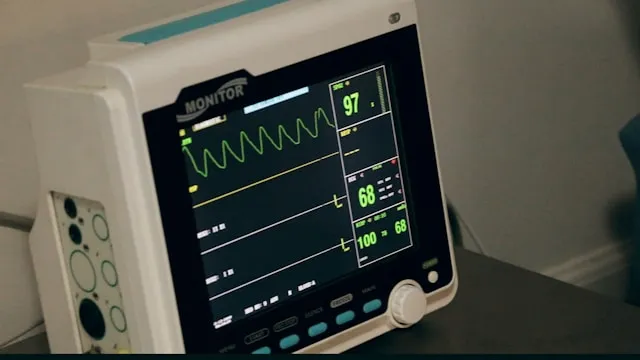Coronary Artery Bypass Grafting (CABG), commonly referred Bypass Surgery, is a surgical procedure that redirects blood flow around a blockage or narrowed section in the major arteries supplying blood and oxygen to the heart. A cardiac surgeon can perform the bypass surgery in any of the 2 ways -
- Beating Heart Bypass Surgery is CABG performed while your heart is still beating, and does not require a heart-lung machine. Using a stabilisation device, the area of the heart to be operated upon is immobilised for the duration of the surgery. This method has become more common during the recent times.
- The other, more traditional method of Cardiopulmonary Bypass (CPB) uses a heart-lung machine and involves temporarily stopping the heart and replacing it with the machine.
Get Bypass Surgery Cost in Delhi from Trusted Hospitals - FREE
When is Beating Heart Bypass Surgery recommended?

Like all organs in your body, the heart also requires a constant supply of blood and oxygen. The left and right coronary arteries supplying these to the heart can develop a condition known as atherosclerosis, in which these arteries become narrowed due to fatty-acid build-up. The condition is also known as coronary heart disease. Severe atherosclerosis interferes with the supply of oxygen-rich blood to the heart muscles and cause chest pain, an ailment called angina. A cardiac surgeon may consider a bypass surgery in the following situations:
- Angina is severe and your heart muscles fall short of oxygen supply with even the lightest form of activity or at rest.
- There are blockages in more than one artery supplying blood to the heart.
- Artery blockages could not be treated with medication or artery-opening procedures like angioplasty, or you have been through a previously unsuccessful angioplasty.
- Emergency situations like a heart attack may prompt the CABG.
Read about: Heart Bypass Surgery vs Angioplasty
Understanding Beating Heart Bypass Surgery Procedure:
Before the Procedure
Your doctor will guide you through necessary medication, restrictions on diet and changes lifestyle ahead of your surgery. Various pre-surgical tests like the electrocardiogram (ECG), coronary angiogram, chest X-rays and blood tests will determine your overall health and current status of artery blockages. It is a good time to ask your doctor and other members of your healthcare team any questions or concerns you may have regarding the procedure.
During the Procedure
Beating heart CABG surgery typically lasts 3 to 6 hours but may vary depending on the severity and number of blockages in the heart. The surgery is performed under the effect of a general anesthesia.
The surgeon begins the procedure by removing a segment of a healthy artery or vein (graft) from another part of your body. Grafts are usually taken from the leg (saphenous vein), inside the chest (internal mammary artery) or the arm (radial artery).
Once the graft is ready, the surgeon makes an incision in the center of the chest, along with the breastbone, and spreads open the rib cage to access the heart. Unlike the CBP procedure that stops the heart temporarily and allows circulation of blood to the body through the heart-lung machine, the heart continues to beat in the beating heart CABG.
The surgeon stabilizes the area of the heart to be worked on using a stabilization device. The device gently attaches itself to the surface of the heart through small suction pods that will steady the heart's movement in that area.
Next, one end of the graft is attached to the area that lies just above the blockage in a heart artery. The other end is attached to an area below the blockage. Once the graft is successfully implanted over the blocked blood vessel, normal blood flow resumes in that portion.
Heart Bypass Surgery Recovery:
You will be monitored in the intensive care unit (ICU) for a day or two post the surgery before being transferred to regular hospital care for some more time, depending on your response to the procedure. Discharge may take place within a week, but it will take another three to four weeks before you start feeling better and be able to resume some of your daily activities.
Your doctor may recommend you to attend a cardiac rehabilitation programme for recovery through exercise and education therapy. Follow-up check ups as directed by your hospital will help monitor your progress and take note of any relapse in treatment.
Heart Bypass Surgery Risks:
CABG is an open-heart bypass surgery that can pose complications during and/or after the procedure, though your risk towards experiencing any complications depends greatly on the status of your health prior to the surgery, and is higher if the surgery is carried out as an emergency.
Possible risks from a coronary bypass surgery include:
- Chest wound infection
- Heart rhythm problems or stroke
- Arrhythmias
- Post-pericardiotomy syndrome, or low fever and chest pain
- Disruption of cognitive abilities and memory loss
Clinical studies have linked beating heart CABG procedure to shorter post-operative stays and reduced complications after surgery as compared to the CPB.
Beating Heart Fast - A beating heart CABG surgery effectively restores blood supply to your heart. However, only heart-healthy lifestyle changes will maintain the positive, long-term results of the surgery.
If you find any information about Beating Heart Bypass Surgery, then you may consult Cardiologist near me in Kolkata or Best Cardiologist in Panchkula.
Call +91 8010-994-994 and talk to Credi Medical Experts for FREE. Get assistance in choosing the right cardiac surgeon, compare cardiac treatment cost from various centres and timely medical updates.

Reviewed by







